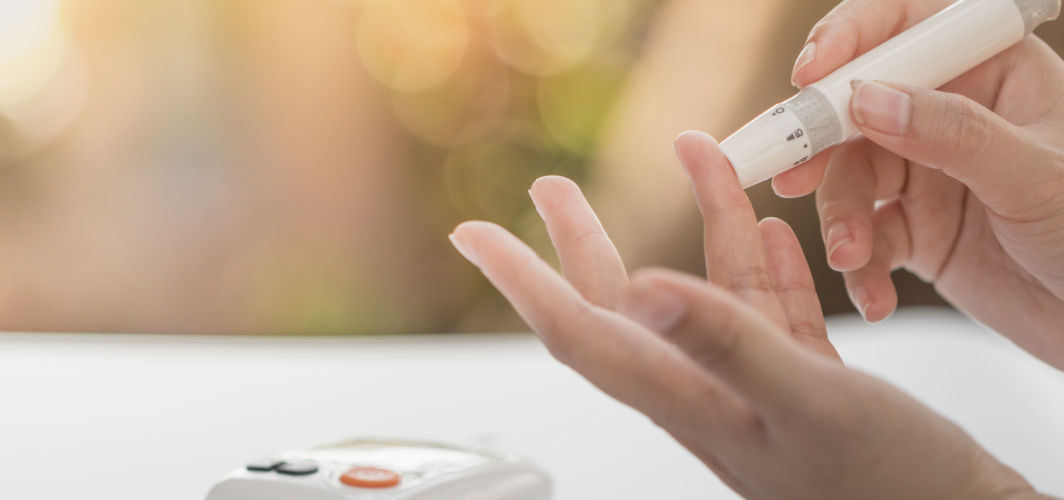Diabetes Management
Insulin Therapy for Diabetes: Separating Myths from Facts
5 min read
By Apollo 24/7, Published on - 15 September 2021, Updated on - 27 March 2024
Share this article
1
0 like

Most of us know about the significance of insulin in diabetes management. Many diabetics rely on insulin therapy to manage their blood glucose levels. Nevertheless, sometimes insulin has become associated with certain myths, most of which are not true. Experts say that these myths can negatively influence people from making informed decisions about whether this potentially lifesaving therapy is right for them. The article takes a closer look at some of these misconceptions about insulin therapy and straightens them out with facts.
Common myths and facts about insulin therapy
Myth 1: Insulin therapy doesn’t work
Fact: The myth can be put down to people who don't adhere to the proper timing and dosage of insulin. According to diabetologists, insulin therapy is one of the most effective treatment options for lowering blood glucose levels. The synthetic insulin used these days to maintain blood glucose levels is very similar to the one manufactured naturally by the body. As a result, it is as effective as natural insulin.
Myth 2: Insulin therapy causes weight gain
Fact: This is not exactly a myth. While it is true that some people with type 2 diabetes put on weight after they begin insulin therapy, it doesn’t imply that the insulin is inducing weight gain. The increase in weight can be attributed to the fact that insulin is helping the body process blood glucose more efficiently. In most cases, the weight gain is temporary and tends to level out over some time.
Myth 3: Insulin therapy is addictive
Fact: One can never get addicted to insulin. Unlike an addictive substance, insulin is a hormone that the body needs for various biological functions. In healthy individuals, it is produced naturally by the pancreas. However, people with diabetes require insulin therapy to maintain the optimum levels of the hormone. Injecting insulin multiple times a day does not cause one to become addicted to it.
Myth 4: Insulin injections can hurt
Fact: Many people dread the thought of injecting insulin multiple times a day. However, contrary to popular perception, insulin injections are relatively painless. They are less painful than the finger pricks used to measure blood glucose levels. People who are averse to daily syringe usage can also opt for injector pens that inject insulin into the subcutaneous tissue (the tissue between the skin and muscle) painlessly.
Myth 5: Insulin therapy leads to hypoglycemia
Fact: Indeed, insulin therapy can significantly lower blood glucose levels. A prolonged episode of very low blood glucose level (hypoglycemia) can cause a loss of consciousness. While hypoglycemia is possible, it happens rarely owing to the introduction of newer and long-acting insulins. The risk can be further minimized by taking insulin as per the physician’s recommendation.
People with type 2 diabetes generally have a lower risk of hypoglycemia than those with type 1 diabetes. However, they should be aware of the symptoms of hypoglycemia - anxiety, shaky hands, sweating, and an urge to eat. Consuming a small number of sugary foods or beverages can help reverse the lower blood glucose levels.
Myth 6: Insulin therapy can cause life-threatening complications
Fact: This is inaccurate. Diabetes can cause several debilitating and life-threatening complications like retinopathy (eye damage), neuropathy (nerve damage), nephropathy (kidney or renal damage), cardiovascular disease, foot damage, skin conditions, etc. Often, these complications arise from disregarding medical advice or delaying diabetes treatment, including insulin therapy. Doctors recommend insulin therapy, along with an active lifestyle and healthy diet, to prevent these complications.
Myth 7: Insulin prescription means one has failed in managing blood glucose levels
Fact: Type 2 diabetes is a progressive metabolic disease. Over time, the pancreas becomes unable to produce enough insulin for the body. Even regular exercise, dietary changes, and oral medicines become less effective in bringing blood glucose levels under control. However, this does not mean that one has failed in managing diabetes. This means that these treatment options are no longer sufficient, and it is time to include insulin therapy as part of the regimen to ensure that the blood glucose levels stay in a healthy range.
Myth 8: Insulin therapy means multiple shots daily
Fact: This is not always the case. A physician may prescribe long-acting insulin shots that are taken once a day. Long-acting shots are usually enough to maintain blood glucose levels. However, if the levels rise tremendously after a meal, then one may need to take insulin multiple times a day.
Myth 9: Insulin therapy will continue forever
Fact: The duration of insulin therapy can vary for different individuals. Some people may require insulin temporarily, such as during pregnancy, whereas others may need to stay on it for an indefinite period. Lifestyle changes also play an important role. Those who lose weight, work out regularly and follow a strict diet may no longer require insulin.
Takeaway
Insulin therapy is an effective treatment option for diabetics struggling with elevated blood glucose levels. Although the therapy has multiple proven benefits, several misconceptions have come to be associated with it. Since a lot of people tend to be influenced by these misconceptions, it is important to clear them with facts. With the right information, people with diabetes will be empowered to make better and more informed decisions. If you need expert advice, talk to experts.
Diabetes Management
Consult Top Diabetologists
View AllLeave Comment
Recommended for you

Diabetes Management
At What Week Do You Get the Gestational Diabetes Test?
Wondering when to get tested for gestational diabetes during pregnancy? Typically, this crucial test is done during 24–28 weeks of pregnancy. Closely monitoring your blood sugar levels helps ensure a healthy journey for you and your baby. Remember, with the right help, you can effectively manage blood sugar levels. Seek expert guidance today for a healthier tomorrow.
.jpg?tr=q-80)
Diabetes Management
The Role of Algae Supplements in Diabetes Nutrition
Algae supplements could potentially revolutionize the way we manage diabetes. They work on multiple fronts - from regulating blood glucose levels to impacting gut health. However, as research unravels its full potential, make an active choice towards better diabetes management today with lifestyle changes and dedicated support like the Apollo Super 6 program.

Diabetes Management
Should Non-Diabetic People Check Their Blood Sugar Levels?
Regular blood sugar monitoring benefits non-diabetic individuals by aiding in early detection of conditions like prediabetes, allowing proactive measures. Family history of diabetes prompts risk assessment and lifestyle changes. While non-diabetics don't need frequent monitoring, occasional checks help in early detection, prevention, and health awareness.
Subscribe
Sign up for our free Health Library Daily Newsletter
Get doctor-approved health tips, news, and more.
Visual Stories

8 Fruits That are Incredibly Healthy for Diabetes
Tap to continue exploring
Recommended for you

Diabetes Management
At What Week Do You Get the Gestational Diabetes Test?
Wondering when to get tested for gestational diabetes during pregnancy? Typically, this crucial test is done during 24–28 weeks of pregnancy. Closely monitoring your blood sugar levels helps ensure a healthy journey for you and your baby. Remember, with the right help, you can effectively manage blood sugar levels. Seek expert guidance today for a healthier tomorrow.
.jpg?tr=q-80)
Diabetes Management
The Role of Algae Supplements in Diabetes Nutrition
Algae supplements could potentially revolutionize the way we manage diabetes. They work on multiple fronts - from regulating blood glucose levels to impacting gut health. However, as research unravels its full potential, make an active choice towards better diabetes management today with lifestyle changes and dedicated support like the Apollo Super 6 program.

Diabetes Management
Should Non-Diabetic People Check Their Blood Sugar Levels?
Regular blood sugar monitoring benefits non-diabetic individuals by aiding in early detection of conditions like prediabetes, allowing proactive measures. Family history of diabetes prompts risk assessment and lifestyle changes. While non-diabetics don't need frequent monitoring, occasional checks help in early detection, prevention, and health awareness.


